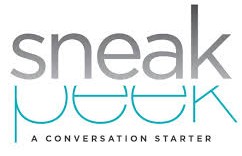Comprehensive Candidate Screening – The Interview

This week we’re continuing the discussion on the seven elements of a Comprehensive Candidate Screening process, with topic number five, the Interview. The prior post covered the importance of utilizing Personal References and the role they play in bubbling up need-to-know information about the character, commitment, and history a person has of working with children.
Experts agree incorporating a personal interview during the screening process is an important step in preventing abuse. Having a face-to-face discussion yields valuable information and allows a candidate to be reviewed from different angles.
The interview process will differ between organizations. Figure out what works best for you and be sure to include key leaders and those working directly with the candidate.
What Say You
The interview is a great way to gauge a person’s interest and commitment to the position and should be done for all volunteers (including adolescents), staff, and leadership who will work directly with children or youth.
Ideally, the interview team should include 2-3 trusted staff members. Each interviewer should prepare with individual questions based on the candidate’s resume, completed written application, a recent review of your Child Protection Policy (CPP), and their area of expertise.
It’s best to understand up front if the candidate would have any issues following established guidelines and policy in place to protect children. A good way to measure a person’s ability to handle certain situations outlined in the CPP is to give them real-life scenarios and ask their response. This will help prevent possible challenges if the candidate does not agree with or understand the current CPP.
More to Discuss
Additional topics for the interview should include a variety of questions that pertain to their past work with children, abuse prevention and the responsibilities and reporting structure of the position. The questions should seek to indicate a person’s well-being, and competency, in developing and mentoring children. The organization will determine the questions of greatest importance because not all questions will pertain to every position. Listed below are a few to consider.
- Have you ever been accused of, plead guilty to or been a party to any childhood abuse or neglect or any other crime against a minor?
- Why do you want this job? Why are you interested in working with children?
- What strategies to do you use when interacting with difficult children?
- Do you use drugs or alcohol? If so, when? Have you ever used drugs or alcohol while you were caring for children?
Keep in mind there are limits to what can be asked in an interview. It’s important to be thorough, but try to avoid discriminating or overly invasive lines of questioning. All interviews should be completed before a candidate starts the position.
Wrap Up
The final step is to bring together the interviewers to share their thoughts and opinions. Often one person will pick up on something that another person missed. That’s why it’s important to have multiple people on the interview team for each candidate.
While nothing is foolproof and all abuse, unfortunately, won’t be eliminated, the face-to-face interview is another good step in the overall process of comprehensively screening each candidate. Along with the interview, the application, background check, social media review, and reference check make a strong case for the protection and safety of children.
The evaluation of individuals who will work directly with kids offers parents the assurance you have done your due diligence in screening and removing anyone who might wish to harm. It also demonstrates your commitment to implementing all available precautions, which helps mitigate risk and reduce liability.
Sources:
On Guard, Deepak Reju
The Child Safeguarding, Tchividjian & Berkovits


